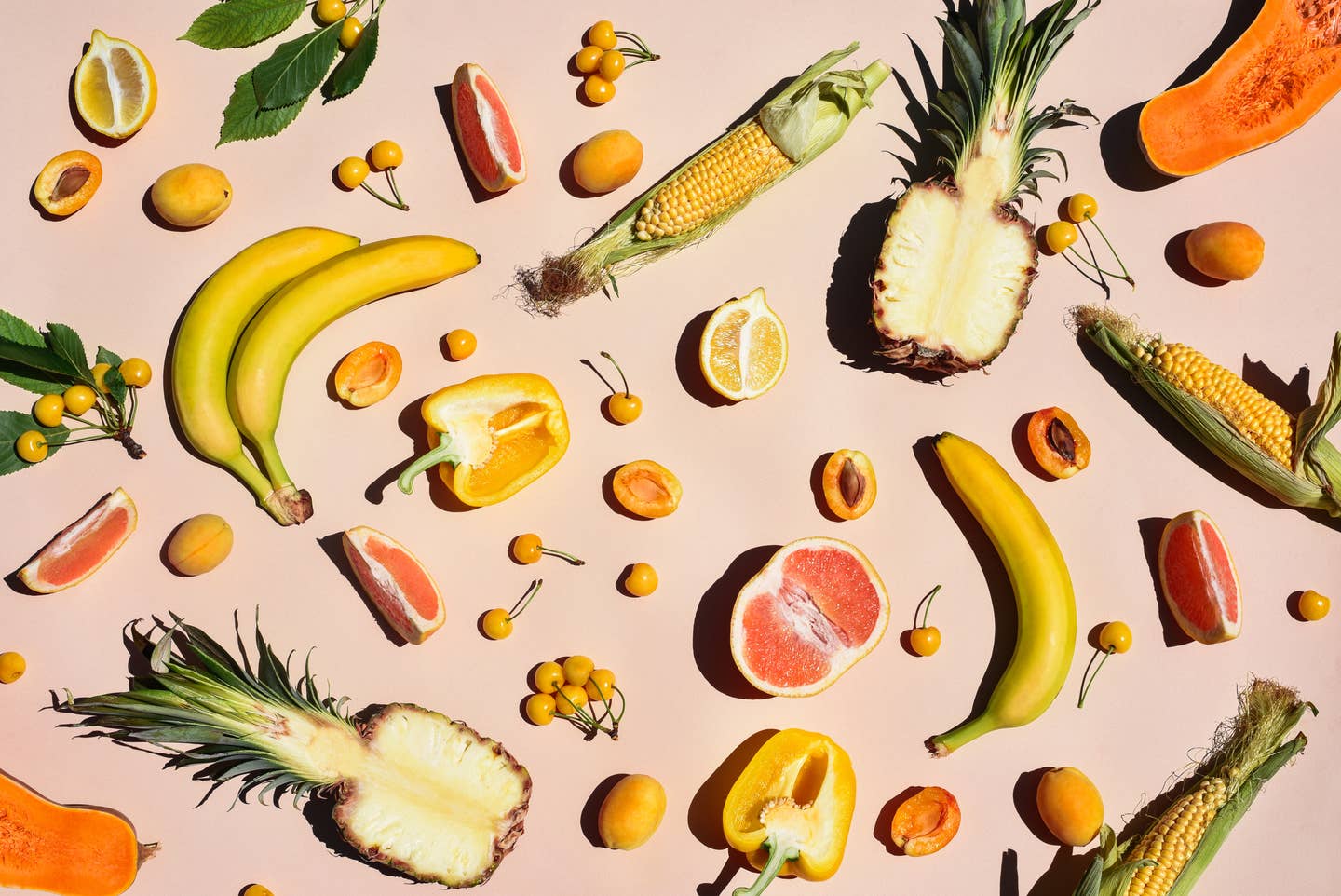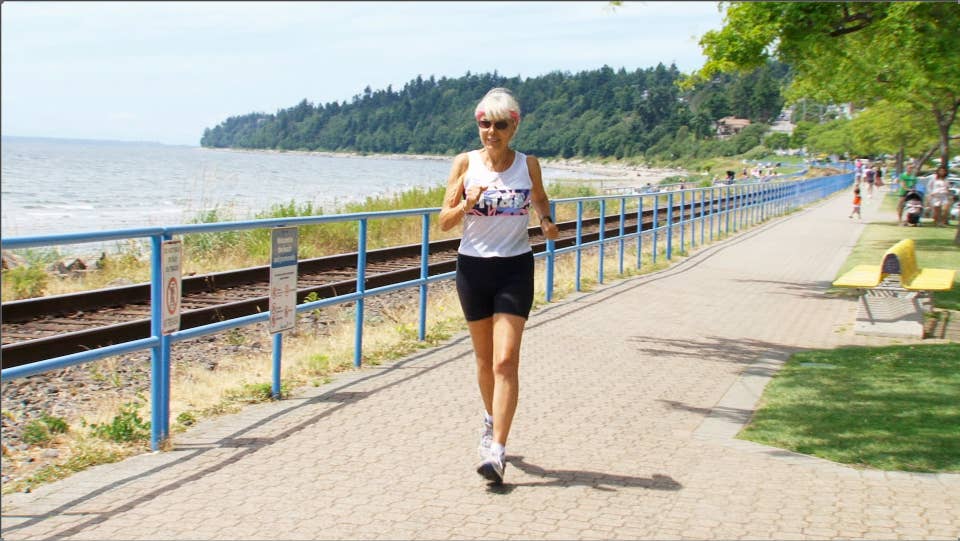
“Eating Plant-Based is a Way of Taking care of Yourself,” says Tiffany Ma, RD
Sometimes being vegan is a personal decision and other times it affects your relationship with your entire family. That was the case when Tiffany Ma decided to change her diet and stop eating meat. It was not a popular choice, to say the least. But years later Tiffany, now a Registered Dietician and weight lifter, explains that eating plant-based is a way of taking care of yourself. She had to get beyond the resistance from her father, and for that she also thanks the vegan community, since now her family sees that this is a choice, not her being a petulant child who didn't want to eat what the family was having for dinner.
"Being vegan makes me stronger." She means physically and mentally and emotionally. She had to fight to get others on board with her decisions, but it was worth all of the struggles to stay the course. Her story is inspiring, and here she shares what she's been through to get to the point where she can be authentically herself, no apologies needed.
Q. What has been your biggest hurdle since you gave up meat?
Tiffany: My family. I was born and raised in Brooklyn. My dad is from China and my mom is from Malaysia. I'm Asian American. My first language is Cantonese, though of course, we spoke English at school. Growing up in a traditional Asian home, in the Asian culture, eating meat is a sign of prosperity and wealth. If you are able to eat meat it is a sign of success.
Q: When did you stop eating meat?
TM: When I decided to stop eating meat I was 12 years old. My mom was cool with it and my dad was not. My dad gave me a lot of push back and to a really hard to go out to restaurants and with extended family--it was hard. My dad would try to make me eat meat. Even back then, no one was eating plant-based back then. There was no knowledge about being vegan, and no advocacy. I was just this person who was not eating meat. To my dad, it was a bad look.
Q: So how did you deal with this as a young person?
TM: I continued to stay firm in what I believed in. I feel like though I was young and I transitioned to this type of eating I was pretty confident that I was committed to this choice. I went to school and studied diet and it made so much sense for me. When you make those decisions as a young person it makes so much sense and it's much easier to navigate than when you're an adult. And for a lot of people, as adults, its harder to make this switch, but I have that experience. I advocated for myself.
Q. Who was your inspiration?
TM: I first became vegetarian because I was a huge fan of Panic at the Disco. The lead singer, Brendan Urie was a vegetarian and that is what sparked my interest. And when I found out it just made sense. Since I got into it, PETA has become really big. And it's not a direct reason, but I was an animal activist growing up, and now in my present-day, I do it for the environment and for animals and for my health.
The great thing about plant-based eaters is that we tend to have compassion. And we have compassion for other things as well. And so eventually this is what I wanted to study in school, so I became a dietician.
Q. So how does being plant-based and a dietician effect your professional life?
TM: Eating plant-based as a dietician, it's so much easier now. But we are still a minority. It's so important to understand how eating plant-based helps your body and your health --and when you know the science behind it, it does make sense. There is a lot of liberation when it comes to eating plant-based because you rarely get sick. When so much of health care involves poor diet and for many people it is linked to diabetes, being overweight and eating unhealthy foods, eating this way is a liberation. A lot of the reason people get sick has to do with lack of access to fresh foods and lack of opportunity for care.
When people eat plant-based they take care of themselves and their health, whether it is going out and being active. Eating plant-based is one way to take care of yourself.
Q: So you used to be a runner, then a bodybuilder. What events do you do now?
TM: Powerlifting. I used to be a bodybuilder but now you train this specific aspect. I actually used to be a runner. But then I started lifting weights as a way to keep up with my health after running and then would lift and I got into it.
I do the bench press and the deadlift. I now weigh 125 pounds and I can squat 292 pounds. And I can bench press160 pounds. But my best deadlift is 336 pounds.
Q: Holy Moly. That's amazing. Everyone must ask you: Where do you get your protein?
TM: I am a huge advocate for whole plant-based foods. As a dietician, i believe there is no replacement for whole foods. I don't take a lot of supplements. That is where I take a passionate stand. There is no replacement for whole foods. As a vegan, there is no replacement for eating protein in vegetables, legumes, grains and fruits and nuts.
But when it comes to lifting, there is a certain diet regiment and attention to detail as to exactly what you're eating. Sometimes I have to take a few more nutrients. But I mostly eat whole plant foods.
When it comes to protein powder, vegans should keep it in the back of their pantry and only use it when they need it, especially if they are active or a runner. When it comes to protein powders there are so many different kinds but I recommend a mixture of soy and pea protein powders with hemp.There are so many variations of seeds, you have to try out several and see which one feels right to you.
Q: Most people who are runners don't go into powerlifting. How did you get into it?
TM: In my first national competition, I ranked in the top five. They separate you by categories for age and weight. I made the top four. The majority of powerlifters start by lifting light weights. That's healthy for any athlete.
Q. What moves do you recommend to runners who want to stay strong and uninjured?
TM: Not enough people are using resistance training these days, which is the best way to build strong muscles and not get injured. The other thing to do: Lunges with weights. We need bone bearing exercises to grow healthy bones and especially later in life.
I have a lot of women clients who never trained when they were younger. You need to get stronger, by starting to do some light impact training and moves that resist gravity for strong bones.
Lifting weights keep you from getting injured. Right now, women are afraid to lift weights since they worry about getting too muscular. It's hard for women to gain muscle. Because we think about men who train and bulk up, but they have testosterone, so their ability to gain muscle is tied to that. Men create muscle so much more easily than a women do. There is really no fear of lifting weights if you're a woman. It keeps you stronger and helps you avoid injury.
Q: So what is your favorite protein or snack?
TM: I eat lots of different sources of protein. I am a big cooker. I love to play around with different sources of protein but right now satan is my go-to. I use it in a lot at meals.
Q: So how does your dad see things now? Is he proud of you?
TM: My dad came around. It took a few years. But when I reached out to him about it I realize he had seen so much in the culture that had changed. I want to thank the vegan community for being more active since that change really helped my family accept who I am.
I also want to thank the vegans on social media for having a stronger presence and all the plant-based eaters out there who post and talk about this new way of eating, so now my entire family has a better understanding. They know now that it wasn't just me being stubborn as a young woman who refused to eat meat. Now there is it an active community to rely on and it was more than just me trying to rebel as a child.
Q: What is your mantra?
TM: Eating Vegan Makes Me Stronger
More From The Beet






